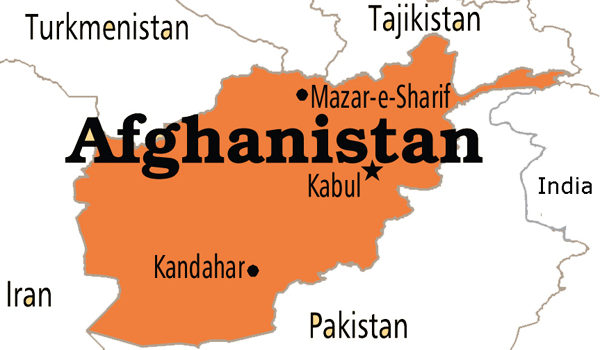Summary: Leaders need to keep their team motivated and work towards the common compelling goal, be willing to talk about problems with a goal to find solutions and follow ethical practices. The author draws example from the recent Afghan take over by Taliban.

The recent fall of Afghan security forces to Taliban in a matter of 2 weeks and without much resistance has taken the world by surprise. Coming after 20 years of hard work and about Rs.6.22 lakh crores of investment (out defence spend in a year is 4.5 lakh cr) is indeed painful. I am neither a military analyst nor a political analyst. I intend to use this example to drive home some management lessons. What management lessons could we learn from this incident?
Leadership is crucial for success
Taliban started their ground work the day they signed the peace(?) treaty in Qatar. They followed multi-pronged strategy of threat, luring and lobbying. They had established contacts with Village elders and had captured about 50% of the 420 district centres by 3rd week of July. They were successful in creating doubts in the minds of the Afghan forces which resulted in a near zero resistance. Leaders in Afghan forces were busy believing everything was under control. They did not read the pulse at the ground level. Afghan forces witnessed large scale desertions and surrender.
Leaders need to instil confidence in their teams and find multiple strategies for reaching their goals. They need to communicate this effectively to their team so that they ensure morale. Mind battles are as effective as the battles that take place in the market place.
Will is as important as skill
The Afghan security forces outnumber the Taliban by almost 3.5:1. They have some of the sophisticated weapons and equipment like night vision gear while Taliban has just small ammunition. Afghan security forces have more than 150 aircraft including attack helicopters while Taliban are just a ground force. How did they manage to win?

The answer lies in the fact that Taliban was a highly motivated group that was working with cohesion towards a singular goal of toppling the government. The government forces on the other side had trained but de motivated forces who either deserted their positions or surrendered without any resistance. They had the skill but the question is where they ready to sacrifice their lives for the sake of the country?
In organizations too, we may be successful in bringing compliance through authority and benefits. But the willingness and passion can only be inculcated through focus on the goal and a cohesion. Leaders have to build stronger teams that have a common goal at sight and are ready to do “whatever it takes” to achieve those goals.
No bad news is not good news
The combat readiness of the Afghan forces was never tested as they always had the support of the US air force and the logistics help. The monthly and the quarterly progress reviews on combat readiness was moved from the battalions to the headquarters where the information was filtered to suit the need of the leaders. A narrative that the forces, with their training, funding and structure were doing well was always floated which was far from the reality. This phenomenon is called as “motivated blindness” by Bazerman and Tenbrunsel who define this as “People see what they want to see and easily miss contradictory information when it’s in their interest to remain ignorant.”
Leaders most often send signals that they want to hear good news and the those under them are tuned to see only the good things while the pressing issues are either ignored or denied. When everything appears to be going well, disaster strikes. Good leaders tend to take bad news as a scope for improvement and learning. They encourage their team to discuss, highlight the issues they face with a focus on finding a way out. They do not approve pushing things under the carpet for they know it will haunt them
Ethics and Prudent financial practices have no substitutes
Significant amount of money spent on the Afghan forces was siphoned out by the officials and there were ghost soldiers in payroll. As a result of this it was reported that several soldiers went unpaid for months and lost their morale. This resulted in large scale desertion or defection. (Source: The tale of two armies-The guardian). On the other hand, the Taliban was highly motivated and well organized, though not well equipped. The results are there for us to see.
Leaders need to practice highest standards of ethics and ensure these practices are followed diligently across the organization. How many times we have seen the failure to track secondary sales results in lot of loss to companies in the form of AR or expired goods.
Greek historian Polybius says, “A good general not only sees the way to victory; he also knows when victory is impossible”. This is true for every leader.
About the author:
Mr. Pattabiraman Nagarajan is a HR professional, Consultant, trainer and an ICF certified coach. Has managed organization change and aligned HR practices to ensure business growth. He holds master degree in Social work and a PG diploma in Business management from IIM Trichy. He could be reached at npattabiraman@relyonus.in. Website: https://relyonus.in
Previous article by Author: Managing Stress






